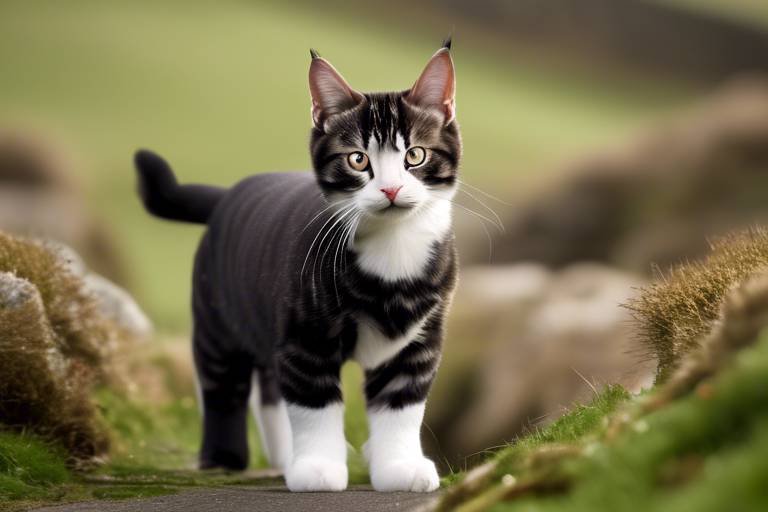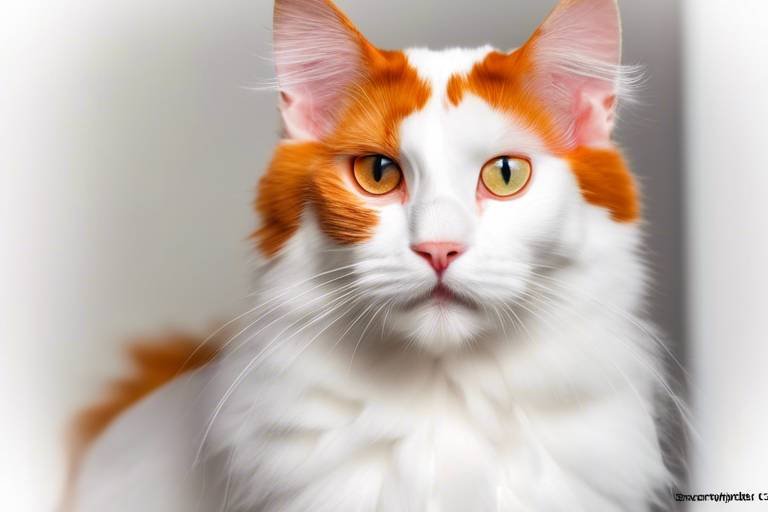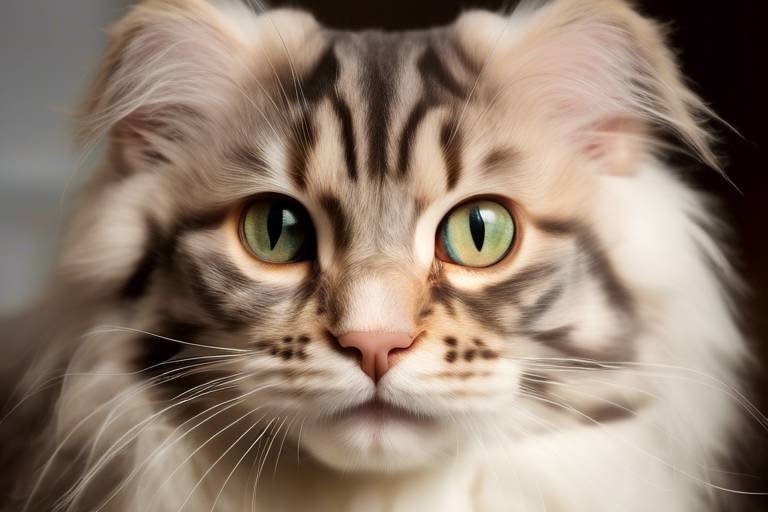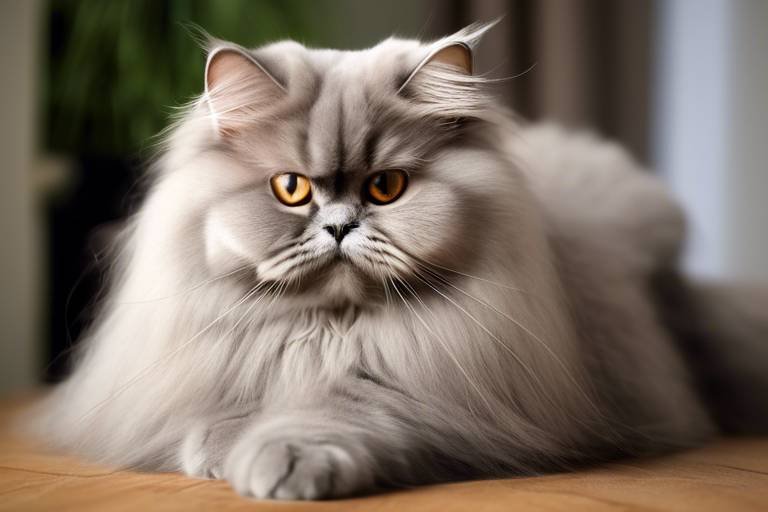Understanding the Unique Traits of the Manx
The Manx cat is not just another feline; it’s a captivating breed that has charmed cat lovers around the globe. What sets these cats apart? Well, it all starts with their unique physical traits. Known primarily for their taillessness, many Manx cats exhibit a range of tail lengths, from completely absent to a short stub. This quirk is a result of a genetic mutation that also contributes to their robust and muscular build, giving them a sturdy appearance that many find appealing.
But it’s not just their looks that make them special. The Manx breed also boasts a variety of coat colors and patterns, from solid blacks and whites to intricate tabbies and calicos. Each cat has its own personality, and the combination of their physical traits and lively demeanor creates a unique charm that captures the hearts of many. If you’re considering bringing a Manx into your home, you’ll find that their distinctive characteristics go beyond just their appearance.
Historically, the Manx cat hails from the Isle of Man, where they’ve been part of folklore and culture for centuries. Their rich history not only adds to their allure but also gives potential owners insight into the breed's temperament and behavior. As we delve deeper into this article, we’ll explore the personality traits that make Manx cats such wonderful companions, their health considerations, and how to best care for them.
Whether you’re a seasoned cat owner or contemplating your first pet, understanding the Manx breed will equip you with the knowledge needed to provide a loving and nurturing environment. So, let’s dive into their physical characteristics and see what makes these cats so unique and lovable!
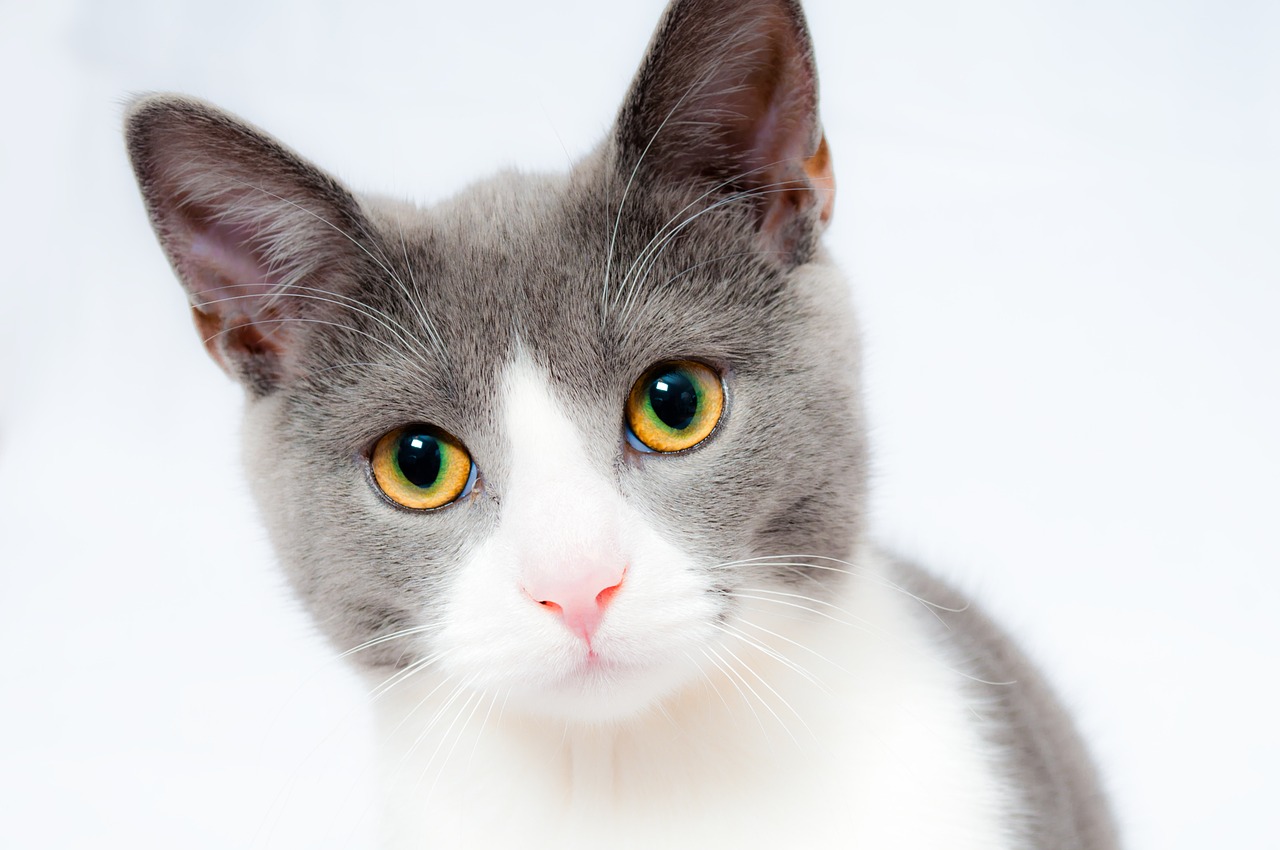
Physical Characteristics
The Manx cat is truly a sight to behold, boasting a range of unique physical traits that set it apart from other feline breeds. One of the most striking features is its taillessness, a result of a natural mutation that has captivated cat lovers for generations. While some Manx cats may have a short tail or a stub, many are completely tailless, giving them a distinctive silhouette that is instantly recognizable. This characteristic, combined with their robust body structure, creates a cat that is not only adorable but also quite sturdy.
Manx cats typically have a rounded head with large, expressive eyes that can come in a variety of colors, adding to their charm. Their ears are medium-sized and rounded at the tips, contributing to their overall rounded appearance. The breed's body is muscular and compact, with a strong back and a broad chest, making them appear powerful yet agile. One could say that the Manx cat is like a little lion in a playful coat!
Another fascinating aspect of the Manx breed is its coat. Manx cats come in a plethora of colors and patterns, from solid hues to intricate tabby designs. This variety allows potential owners to choose a cat that fits their personal aesthetic. The coat is typically dense and plush, giving it a luxurious feel, which is perfect for snuggling. The texture and appearance of their fur can vary, but it often has a soft, silky quality that makes petting them an absolute delight.
To summarize the physical characteristics of the Manx cat, here’s a quick overview:
| Feature | Description |
|---|---|
| Tail | Tailless or partially tailed |
| Body | Muscular and compact |
| Head | Rounded with large eyes |
| Coat | Dense, plush, and comes in various colors |
In essence, the Manx cat's physical characteristics contribute not only to its unique appearance but also to its overall appeal as a pet. Whether you are drawn in by their taillessness, their muscular build, or their varied coat colors, there’s no denying that these cats are a breed like no other. As you consider adding a Manx to your family, keep in mind that their distinctive traits are just one part of what makes them such wonderful companions.
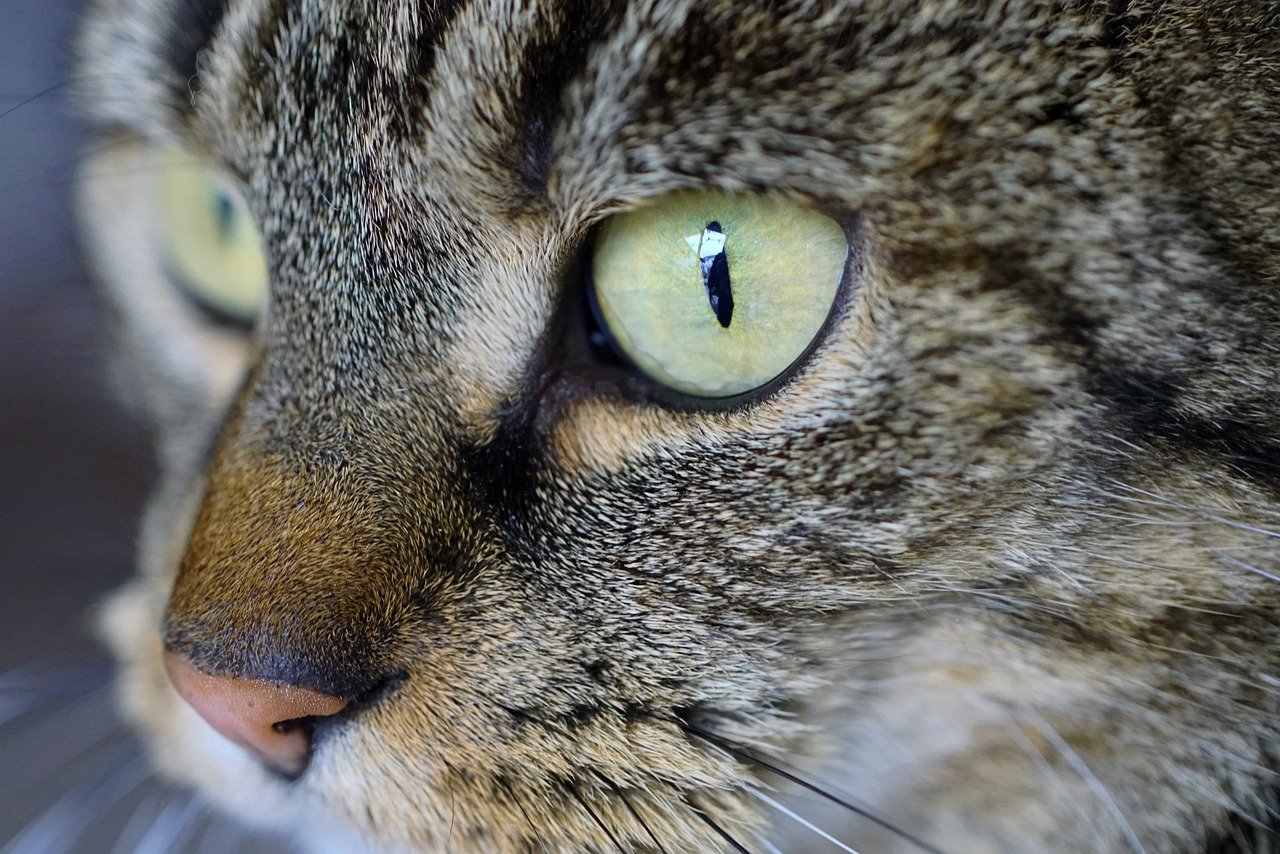
Personality Traits
Manx cats are not just a pretty face; they are brimming with personality! Known for their playful and affectionate nature, these cats bring joy and laughter into any home. Imagine a furry little companion that greets you at the door, tail or no tail, with a purr that melts your heart. Their sociable behavior makes them a perfect fit for families, singles, and everyone in between. Whether you have kids, other pets, or just want a cuddle buddy, the Manx is up for the task!
One of the standout features of the Manx is their ability to form strong bonds with their human companions. They thrive on interaction and love to be involved in family activities. You might find them perched on your lap while you read, or playfully chasing after a feather toy. Their affectionate nature is not just a quirk; it’s a fundamental part of their personality. It’s like having a tiny, furry best friend who always knows when you need a little extra love.
Understanding the social behavior of Manx cats is essential for potential owners. They are known to be friendly and often get along well with other pets and children, making them ideal family pets. In fact, their playful antics can keep children entertained for hours! They enjoy being part of the family dynamic, often joining in on games or simply lounging around while everyone is busy. This sociability makes them less likely to be aloof or standoffish, which is a common stereotype for many cat breeds.
When it comes to interaction, Manx cats are all about forming connections. They have a unique way of communicating with their humans, often using a combination of meows, purrs, and body language. You might notice them following you from room to room, always wanting to be near you. This loyalty is one of the many reasons why they are cherished companions. It's not uncommon for a Manx to curl up beside you on the couch, offering warmth and comfort as you unwind after a long day.
The playful disposition of Manx cats makes them lively companions. Their energy levels are generally high, and they require regular playtime to keep them mentally and physically stimulated. Think of it this way: a bored Manx is like a kid stuck in a classroom all day without recess! Engaging them with toys, puzzles, or interactive play can keep their spirits high and prevent destructive behavior. Whether it’s a simple ball of yarn or a laser pointer, these cats are always ready to pounce into action!
Manx cats are intelligent creatures capable of learning tricks and commands. This intelligence not only makes them fun to train but also helps in keeping their minds sharp. They can learn to fetch, sit, or even walk on a leash with a little patience and consistency. The benefits of mental stimulation for their overall well-being cannot be overstated. Just like us, they need challenges to stay engaged and happy. Think of it as a workout for their brains!
Social Behavior
The social behavior of Manx cats is one of the most endearing aspects of their personality. These felines are not just solitary creatures; they thrive on interaction and companionship. Unlike some breeds that prefer to keep their distance, Manx cats are known for their friendly demeanor. They often display an eagerness to engage with family members, making them a delightful addition to any household. Imagine coming home after a long day, and there’s your Manx, ready to greet you with a gentle nudge and a purr that melts your heart. Isn’t that what every pet owner dreams of?
One of the most fascinating traits of the Manx is their ability to get along with other pets. Whether you have dogs, other cats, or even small animals, a Manx can adapt and become a part of the family. Their sociable nature means they are often seen playing or lounging around with their furry companions. This ability to coexist peacefully is an essential quality for families with multiple pets. The Manx’s gentle and playful spirit fosters a harmonious environment, which is a significant advantage for potential owners.
Furthermore, Manx cats exhibit a remarkable level of intelligence and curiosity. They are not just passive observers; they actively seek out interaction. You might find them following you around the house, intrigued by your activities. This inquisitive nature can lead to some amusing scenarios, like a Manx trying to "help" you with chores or playfully interrupting your work. Their playful antics can bring laughter and joy to your daily routine, creating a lively atmosphere at home.
When it comes to children, Manx cats are often incredibly tolerant and affectionate. They are known to be patient with little ones, making them an ideal choice for families. However, it’s important to teach children how to interact with pets gently and respectfully. A well-socialized Manx can become a child’s best friend, participating in games and even snuggling up during storytime. This bond can foster a sense of responsibility and empathy in children, teaching them the importance of caring for another living being.
In summary, the social behavior of Manx cats is a blend of friendliness, adaptability, and intelligence. Their ability to form strong bonds with humans and other pets makes them exceptional companions. If you’re considering adding a Manx to your family, be prepared for a furry friend who will not only provide love and affection but also a sprinkle of joy and laughter in your life.
Interaction with Humans
The Manx cat is not just a pet; it's a member of the family. These charming felines are known for their affectionate nature and their ability to form deep bonds with their human companions. When you bring a Manx into your home, you're not just getting a cat; you're welcoming a playful friend who thrives on interaction and companionship. Their unique personality traits make them incredibly engaging, and they often seek out human interaction as a source of comfort and joy.
One of the most delightful aspects of the Manx breed is their social behavior. Manx cats are typically very friendly and sociable, often getting along well with other pets and children. This makes them ideal family pets, as they can adapt to various household dynamics. Imagine coming home after a long day, and there’s your Manx, ready to greet you with a soft purr and a gentle nudge. They have a way of making you feel like the most important person in the world.
These cats are also known for their playful demeanor. They love to engage in interactive play, whether it's chasing after a feather toy or pouncing on a laser dot. Their playful antics can bring a smile to anyone’s face, and they often enjoy participating in family activities. This playfulness is not just for fun; it’s a crucial part of their interaction with humans. Regular playtime helps strengthen the bond between you and your Manx, creating a relationship built on trust and mutual enjoyment.
Moreover, the affectionate nature of Manx cats influences how they interact with their human companions. They tend to follow their owners around the house, often sitting close by or even curling up in their laps. This behavior is not just a sign of affection; it’s their way of showing that they want to be part of everything you do. They thrive on attention and will often seek it out, whether it’s through gentle headbutts or soft meows that beckon you to come closer.
In essence, the interaction between Manx cats and their humans is a beautiful dance of companionship and affection. They are not just pets but loyal friends who bring joy and warmth into our lives. If you’re considering adopting a Manx, be prepared to open your heart and home to a cat that will undoubtedly become a cherished member of your family.
- Do Manx cats require special care? Yes, they may need specific attention due to their unique health considerations.
- Are Manx cats good with children? Absolutely! Their friendly nature makes them great companions for kids.
- What is the average lifespan of a Manx cat? Manx cats typically live between 10 to 14 years, depending on their health and care.
- Do they need a lot of exercise? Yes, regular playtime is essential for their physical and mental well-being.
Playfulness and Activity Level
The Manx cat breed is renowned for its playful disposition, which makes them not just pets but true companions. These cats possess an innate curiosity and energy that can brighten any home. Imagine coming home after a long day and being greeted by a furry ball of enthusiasm, ready to play and explore! Their playful nature is not just a phase; it’s a fundamental part of their personality that continues throughout their lives.
One of the most delightful aspects of owning a Manx is their activity level. They thrive on interaction and playtime, making them perfect for families with children or anyone looking for a lively companion. Whether it’s chasing after a feather toy, engaging in a game of hide-and-seek, or simply pouncing on a piece of crumpled paper, Manx cats can turn any mundane moment into a fun adventure. Their playful antics can be both entertaining and heartwarming, showcasing their playful spirit and intelligence.
To keep your Manx cat happy and healthy, it’s essential to provide them with plenty of opportunities for play and exercise. Here are a few tips to ensure your playful feline stays engaged:
- Interactive Toys: Invest in toys that stimulate their hunting instincts, such as feather wands or laser pointers.
- Climbing Structures: Provide cat trees or shelves for climbing and exploring, as Manx cats love to observe their surroundings from a height.
- Regular Playtime: Set aside time each day to engage in play sessions, which help strengthen your bond and keep them physically active.
Moreover, the importance of mental stimulation cannot be overstated. Manx cats are intelligent and can quickly become bored if not challenged. Puzzle toys or treat-dispensing devices can provide both entertainment and mental exercise, keeping their minds sharp and active. Think of it as a workout for their brains, much like how we enjoy solving puzzles or playing games to keep ourselves engaged.
In summary, the playfulness and activity level of Manx cats are significant traits that contribute to their charm. By understanding their need for play and providing the right environment, you can ensure that your Manx remains a happy, healthy, and engaging companion for years to come.
- How much playtime do Manx cats need? Manx cats thrive on daily playtime, ideally around 30 minutes to an hour, broken into multiple sessions.
- Are Manx cats good with children? Yes, their friendly and playful nature makes them great companions for children, provided they are socialized early.
- What types of toys do Manx cats prefer? Manx cats enjoy interactive toys, climbing structures, and anything that stimulates their hunting instincts.
Intelligence and Trainability
The Manx cat is not just a pretty face; these felines are known for their remarkable intelligence and adaptability. If you’ve ever watched a cat solve a puzzle or learn a new trick, you’ll appreciate just how clever these little creatures can be. Manx cats, with their keen minds, thrive on mental challenges that keep them engaged and stimulated. It’s almost like they have a built-in desire to learn, making them a joy to train.
One of the most fascinating aspects of the Manx breed is their ability to pick up commands and tricks fairly quickly. Whether it's learning to fetch a toy or responding to their name, Manx cats often display a level of comprehension that can surprise even seasoned cat owners. Their intelligence allows them to understand routines and household dynamics, which means they can adapt to their environment with ease. This adaptability is not just a trait; it’s a necessity for their happiness.
When it comes to training, consistency is key. Just like teaching a child, you need to be patient and use positive reinforcement. This could be in the form of treats, praise, or playtime. For instance, if you're teaching your Manx to sit, reward them immediately when they do it right. This encourages them to repeat the behavior. Over time, you’ll find that they not only learn commands but also start to anticipate what you want from them, which can lead to some truly entertaining moments.
Another important point to consider is the type of activities you engage in with your Manx. They thrive on interactive play and mental stimulation. Here are some activities that can enhance their intelligence and trainability:
- Puzzle Toys: These toys challenge their problem-solving skills and keep them entertained.
- Agility Training: Setting up a small obstacle course can be a fun way to engage their minds and bodies.
- Clicker Training: This method is effective for teaching tricks and commands, reinforcing good behavior with a click and a treat.
Incorporating these activities into your routine not only helps in training but also strengthens the bond between you and your furry friend. The more time you spend interacting with your Manx, the more they will thrive. Remember, a well-stimulated cat is a happy cat!
In conclusion, the intelligence and trainability of the Manx cat make them exceptional companions. Their willingness to learn and adapt can turn training sessions into delightful experiences filled with laughter and joy. So, if you're considering adding a Manx to your family, be prepared for an intelligent, engaging, and loving companion that will keep you on your toes!
Q: Are Manx cats easy to train?
A: Yes, Manx cats are generally easy to train due to their intelligence and eagerness to learn. Consistent training with positive reinforcement works best.
Q: How can I keep my Manx mentally stimulated?
A: Engage them with puzzle toys, interactive games, and agility training to keep their minds sharp.
Q: Do Manx cats have any special training needs?
A: While they don’t have specific training needs, they thrive on regular mental and physical stimulation, so incorporating variety in their activities is beneficial.
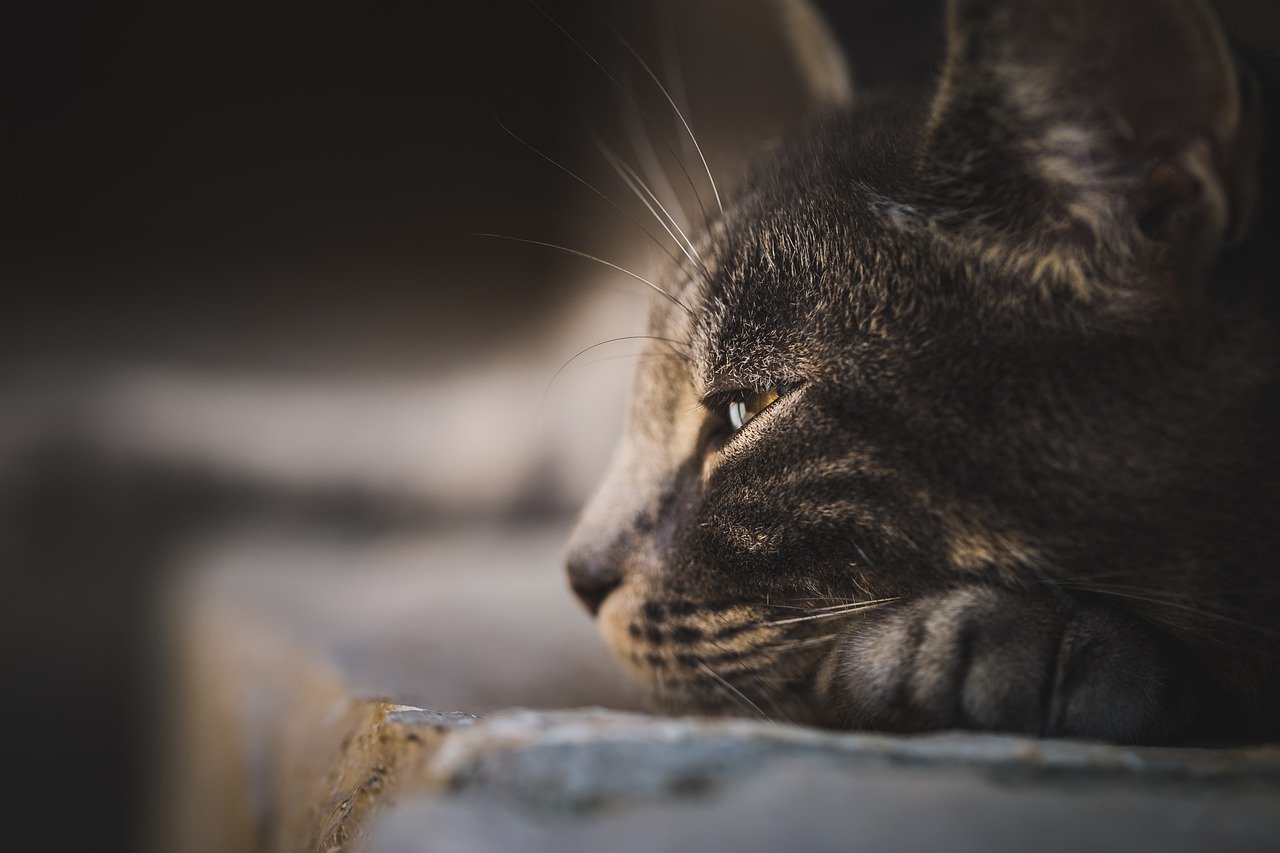
Health Considerations
When it comes to the of Manx cats, it's essential to be informed and proactive. Like any breed, Manx cats are susceptible to certain health issues, which can range from mild to severe. Understanding these potential problems can help ensure that your feline friend lives a long, happy, and healthy life. One of the most notable concerns is the condition known as Manx Syndrome, a genetic disorder that can lead to spinal defects. This syndrome can manifest in various ways, including problems with the spine, neurological issues, and even organ malformations. It’s crucial for prospective owners to be aware of this condition and to choose reputable breeders who conduct health screenings.
Besides genetic issues, Manx cats can also experience common feline health problems. Regular veterinary check-ups are vital for early detection and management of any health concerns. These check-ups often include vaccinations, dental care, and assessments of their overall health. Manx cats, due to their unique body structure, may also be prone to obesity, which can lead to other serious health issues such as diabetes and joint problems. Thus, maintaining a balanced diet and ensuring they get enough exercise is critical.
Diet plays a significant role in the health of Manx cats. Owners should prioritize high-quality, nutritious food that meets their specific dietary needs. It's recommended to consult with a veterinarian to determine the best diet plan tailored to your cat's age, weight, and health status. Additionally, keeping an eye on their weight and adjusting their food intake accordingly can help prevent obesity-related issues.
| Common Health Issues | Symptoms | Preventative Measures |
|---|---|---|
| Manx Syndrome | Spinal deformities, neurological issues | Choose reputable breeders, regular vet check-ups |
| Obesity | Weight gain, lethargy | Balanced diet, regular exercise |
| Dental Problems | Bad breath, difficulty eating | Regular dental check-ups and cleanings |
In addition to these concerns, it’s important to be aware of the signs of common illnesses. Regular monitoring of your cat’s behavior, eating habits, and litter box usage can provide clues about their health. If you notice any unusual changes, such as a sudden loss of appetite or lethargy, it’s best to consult with a veterinarian promptly.
Preventative care plays a vital role in maintaining the health of Manx cats. Establishing a routine that includes regular veterinary visits, appropriate vaccinations, and a balanced diet will go a long way in ensuring your cat's well-being. Furthermore, providing mental stimulation through play and interaction will keep them engaged and help prevent behavioral issues that may arise from boredom.
- How often should I take my Manx cat to the vet? Regular check-ups are recommended at least once a year, or more frequently if your cat has existing health issues.
- What should I feed my Manx cat? A balanced diet with high-quality cat food is essential. Consult your vet for personalized recommendations based on your cat's age and health.
- Are Manx cats prone to any specific diseases? Yes, they can be prone to Manx Syndrome and obesity, among other health issues.
- How can I keep my Manx cat healthy? Regular vet visits, a healthy diet, exercise, and mental stimulation are key to maintaining your cat's health.
Common Health Issues
When it comes to the Manx cat, understanding their health is as crucial as appreciating their unique charm. Like all breeds, they come with their own set of health considerations that potential owners should be aware of. One of the most significant concerns is Manx syndrome, a condition that can affect the spinal cord development of kittens. This syndrome can lead to a range of symptoms, from mild to severe, including problems with mobility and coordination. It’s essential to recognize that not all Manx cats will experience this, but being informed can help in early detection and management.
Another common issue that Manx cats face is spinal defects. Due to their taillessness, which is a result of a genetic mutation, these cats can sometimes have malformed vertebrae. This can lead to complications such as lumbosacral disease, which affects the lower spine and can cause pain and discomfort. Regular check-ups with a veterinarian can help monitor these conditions and ensure that your feline friend remains healthy and happy.
In addition to these genetic concerns, Manx cats can also be prone to certain dietary issues. It's vital to provide them with a balanced diet that meets their nutritional needs, as obesity can lead to a variety of health problems, including diabetes and joint issues. Here’s a quick overview of some common health issues faced by Manx cats:
| Health Issue | Description | Prevention/Treatment |
|---|---|---|
| Manx Syndrome | A genetic condition affecting spinal cord development. | Regular veterinary check-ups; genetic screening. |
| Spinal Defects | Malformation of vertebrae leading to mobility issues. | Monitoring and possible surgical intervention. |
| Obesity | Excess weight can lead to various health problems. | Balanced diet and regular exercise. |
Ultimately, being a responsible owner means staying informed about these potential health issues. Regular veterinary care, a nutritious diet, and an active lifestyle can significantly enhance the quality of life for your Manx cat. By understanding and addressing these health concerns, you can ensure that your furry companion remains a vibrant and joyful part of your family for years to come.
- What is Manx syndrome? - Manx syndrome is a genetic condition that affects the spinal cord and can lead to mobility issues in Manx kittens.
- Are Manx cats prone to obesity? - Yes, like many cats, Manx cats can become overweight if not provided with a balanced diet and sufficient exercise.
- How can I prevent health issues in my Manx cat? - Regular veterinary visits, a nutritious diet, and encouraging playtime can help prevent many health issues.
Preventative Care
When it comes to ensuring your Manx cat lives a long, healthy, and happy life, is absolutely essential. Just like we humans schedule regular check-ups with our doctors, our feline friends need the same attention. Regular veterinary visits are crucial for early detection of potential health issues, which can lead to better outcomes for your beloved pet. Ideally, you should take your Manx to the vet at least once a year for a comprehensive examination.
During these check-ups, your vet will perform a thorough physical examination, check for any signs of illness, and discuss your cat's diet, behavior, and lifestyle. Additionally, vaccinations play a vital role in preventing diseases. Your veterinarian can recommend a vaccination schedule tailored to your Manx's specific needs, which can include core vaccines such as:
- Rabies
- Feline distemper (panleukopenia)
- Feline herpesvirus
- Feline calicivirus
Another key aspect of preventative care is nutrition. Providing your Manx with a balanced diet that meets their unique dietary needs is crucial for their overall health. Manx cats can be prone to obesity, so monitoring their weight and ensuring they consume the right amount of food is important. Look for high-quality cat food that lists meat as the first ingredient and avoid excessive treats. You might also want to consult your vet about the best feeding regimen for your cat.
Furthermore, dental health is often overlooked but is just as important as any other aspect of care. Regular dental cleanings and providing dental treats can help prevent periodontal disease, which is common in cats. Don't forget to check your Manx's teeth and gums regularly, as any signs of discomfort or unusual behavior could indicate a dental issue that needs immediate attention.
Lastly, consider the importance of mental and physical stimulation. Engaging your Manx in playtime not only strengthens your bond but also keeps them fit and mentally sharp. Toys, climbing structures, and interactive games can keep your cat entertained while preventing boredom-related behaviors like scratching or excessive meowing.
In summary, preventative care for your Manx cat is a combination of regular veterinary visits, vaccinations, proper nutrition, dental care, and mental stimulation. By taking these steps, you can help your furry friend lead a long, fulfilling life.
1. How often should I take my Manx cat to the vet?
It’s recommended to take your Manx cat for a check-up at least once a year, although kittens and older cats may require more frequent visits.
2. What vaccinations does my Manx need?
Core vaccinations typically include rabies, feline distemper, feline herpesvirus, and feline calicivirus. Your vet can provide a tailored vaccination schedule.
3. How can I maintain my Manx's dental health?
Regular dental cleanings, providing dental treats, and checking teeth and gums for any signs of discomfort can help maintain your Manx's dental health.
4. What is the best diet for a Manx cat?
A balanced diet with high-quality ingredients, primarily meat, is essential. Consult your vet for specific dietary recommendations based on your cat's age, weight, and health status.
5. How can I keep my Manx mentally stimulated?
Engaging your Manx with toys, climbing structures, and interactive games is a great way to keep them mentally stimulated and prevent boredom.
Frequently Asked Questions
- What are the unique physical traits of Manx cats?
Manx cats are famous for their distinctive taillessness or partial tails, which sets them apart from other breeds. They have a robust body structure, strong legs, and a round head. Their coat colors vary widely, adding to their charm and appeal.
- Are Manx cats good with children and other pets?
Absolutely! Manx cats are known for their friendly and sociable nature. They typically get along well with children and other pets, making them an ideal choice for families. Their playful demeanor ensures they can keep up with the energy of kids and other animals.
- How intelligent are Manx cats?
Manx cats are quite intelligent and can learn various tricks and commands. Their curiosity and problem-solving skills make them engaging companions. Regular mental stimulation through play and training can enhance their intelligence and strengthen the bond with their owners.
- What health issues are common in Manx cats?
Like many breeds, Manx cats can be prone to specific health issues, including spinal defects known as Manx syndrome. It's important for owners to be aware of these potential concerns to ensure their pets lead healthy lives.
- What preventative care do Manx cats need?
Preventative care is crucial for maintaining the health of Manx cats. Regular veterinary check-ups, vaccinations, and a balanced diet are essential. Keeping up with these practices can help detect any health issues early and promote a long, healthy life.
- How can I keep my Manx cat entertained?
Manx cats are very playful, so providing them with a variety of toys and engaging activities is key. Interactive playtime, puzzle toys, and even training sessions can keep them mentally and physically stimulated, ensuring they remain happy and healthy.

